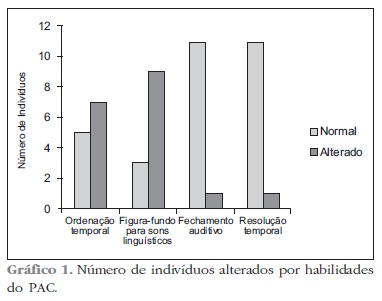INTRODUCTION: Presently, it is admitted that individuals with reading and writing alterations may present delay in the development of listening skills, which may interfere in the learning process. The assessment of the listening skills can occur in a behavioral way, through central auditory processing (CAP) tests, or by electrophysiological assessment highlighting the long latency auditory evoked potentials (LLAEP). The use of the LLAEP as a means of complementary assessment of individuals with reading and writing alterations can become an important data both for further characterization of the alterations, as for the therapeutic guidance of this population. OBJECTIVE: Characterize the CAP and the LLAEP in children with reading and writing alterations. METHOD: Research approved by the Institution's Ethic Commission under nº 305/10. The assessment of CAP and LLAEP was performed in 12 children aged between 8 and 12 years old (average of 10,6 years), with reading and writing alterations confirmed in specific evaluation. RESULTS: The most altered CAP skills were temporal ordination and figure-ground for linguistic sounds. There were found altered results in P300 and in MMN. CONCLUSION: The individuals with reading and writing alterations performed below the expected on CAP tests. The MMN allowed a better characterization of the auditory function of this population. There was evidence of association between the CAP results and the alteration of the LLAEP.
learning; hearing; assessment




